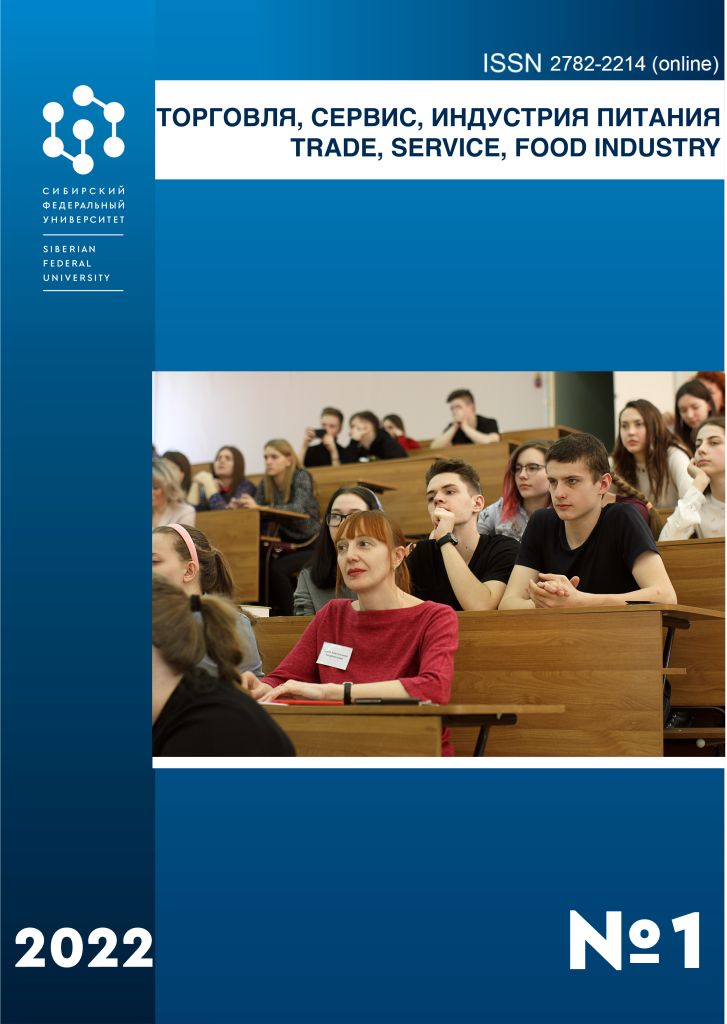Krasnoyarsk, Krasnoyarsk, Russian Federation
CSCSTI 71.35
The Constitution of the Russian Federation guarantees the right to rest and freedom of movement. But not all citizens can equally enjoy this right. People with limited mobility are the category of citizens who find it most difficult to exercise their right to freedom of movement. The definition of "disabled population groups" is fixed in the "Methodological recommendations for ensuring compliance with accessibility requirements in the provision of services to persons with disabilities and other population groups with limited mobility, taking into account the factors that impede the accessibility of services in the field of sports and tourism." The article deals with issues related to the accessibility of the environment for people with limited mobility, in particular, hotels in the city of Krasnoyarsk. The optimization of the space of a particular hotel in the city of Krasnoyarsk for people with limited mobility is proposed.
barrier-free (accessible) environment, disabled people, hotels, hospitality, tourism, travel, people with limited mobility, health, recreation
1. On the basics of tourism activities in the Russian Federation with amendments and additions: Fed. Law of the Russian Federation. No 132-FZ. Moscow, 2007.
2. On the social protection of disabled people in the Russian Federation: fed. Law of the Russian Federation of November 24, 1995 N 181-FZ. Moscow, 2019.
3. Decree of the Government of the Russian Federation No 644 (as amended on 02.07.2018) "On the federal target program "Development of domestic and inbound tourism in the Russian Federation (2011-2018).
4. GOST R 55699-2013 Accessible accommodation facilities for tourists with disabilities. General requirements. Input. 01.01.2015. Moscow, 2014.
5. GOST R 53998-2010 Tourism services for people with disabilities. General requirements. - Input. 01.01,2016. Moscow, 2015.
6. GOST R 51671-2000 Technical communication and information facilities for general use, accessible to disabled people. Classification. accessibility and security requirements. Instead of GOST R 51671-2015; input. 01.01.2017. Moscow:, 2016.
7. GOST R 50690-2000 Tourist services. General requirements. General requirements. Instead of GOST R 50690-94; Introduction 06.30.2001. Moscow, 2004.
8. GOST R 50681-94 Tourist and excursion services. Input. 01/01/1995. Moscow, 1995.
9. SP 257.1325800.2016 Hotel buildings. Design rules. Input. 04/21/2017. - Moscow, 2018].
10. SP 59.13330.2016 Accessibility of buildings and structures for people with limited mobility. Updated edition of SNiP 35-01-2001. Input. 05.15./2017. Moscow, 2017.
11. SP 137.13330.2012 Living environment with planning elements accessible to the disabled. Design rules. Input. 07.01.2013. Moscow, 2013.
12. SP 35-105-2002 Reconstruction of urban development, taking into account accessibility for the disabled and other people with limited mobility. Input. 01/01/2002. Moscow, 2002.
13. SNiP 35-01-2001 Accessibility of buildings and structures for people with limited mobility. Input. 09.01.2001. Moscow, 2006.
14. SP 35-102-2001 Living environment with planning elements accessible to the disabled. Input. 07.16.2001. Moscow, 2003.
15. SP 35-101-2001 Design of buildings and structures, taking into account accessibility for people with limited mobility. General provisions. Input. 07.01.2001. Moscow, 2004.
16. SP 31-102-99 Requirements for the accessibility of public buildings and structures for the disabled and other visitors with limited mobility. Input. 11.29.1999. Moscow, 2001.
17. RDS 35-201-99 The procedure for implementing the requirements for accessibility for the disabled to social infrastructure facilities. Input. 12/22/1999. Moscow, 2000.
18. Bavelsky, A. D. et al. Barrier-free tourism in Moscow.. Moscow, 2011. 186 p.
19. Bavelsky, A.D., Features of the organization of services for persons with disabilities in collective accommodation facilities: Information brochure Moscow, 2014. 146 p.
20. Borisenko-Klepach, N. M. Inclusive tourism: what, how and why? Office for the rights of people with disabilities [Electronic resource]. 2016. Access mode: http://docplayer.ru/48509220-inklyzivnyy-turizm-chto-kak-i-zachem.html (accessed 01.04.2019).
21. Galiullina, S.D. et al. Recreational tourism and service for people with disabilities: textbook. allowance Ufa State University of Economics and Service. Moscow, 2015. 67 p.
22. Hotel "Ermak" [Electronic resource]. Access mode: http://hotel-ermak.ru (accessed 01.02.2022).
23. Door to the world [Electronic resource]. Access mode: https://doorinworld.ru (accessed 01.02.2022).
24. Konanova, E. I. Inclusive tourism: technology and organization of the tourist product: textbook. Rostov-on-Don; Taganrog, 2019. 128 p.
25. Convention on the Rights of Persons with Disabilities of December 13, 2006 [Electronic resource]. - Access mode: http://base.garant.ru/2565085 (accessed 01.02.2022).
26. Kotler, F. et al. Marketing. Hospitality and tourism: a textbook for universities. . 4th ed. Moscow, 2007. 1045 p. (in rus).
27. Kuskov, A. S. Hotel business: textbook. allowanceMoscow, 2009. 328 p.
28. Liberty [Electronic resource]. Access mode: http://accessiblerussia.com (accessed 01.02.2022).
29. Mezhova, L. A. et al. The role of regional inclusive tourism in the socialization of people with disabilities. In Fundamental research. 2015. 2-25.
30. Mezhova, L. A. et al. Theory and practice of organizing inclusive tourism in Russia and abroad. In Modern problems of science and education. 2015. No. 1-1. P. 17.
31. Semenikhin, V.V. Tourist activity. Moscow, 2005. 300 p.
32. Tourism. Hospitality. Service. Dictionary Moscow, 2002. 367 p.].
33. Chudnovsky, A.D. et al. Management of the tourism industry: Proc. allowance Moscow, 2004. 340 p.
34. World Tourism Organization (UNWTO) is a specialized agency of the United Nations [Electronic resource]. - URL : https://www.unwto.org (accessed 01.02.2022).









